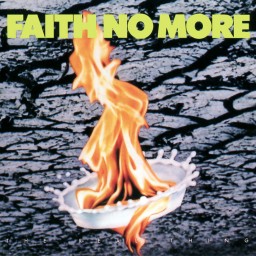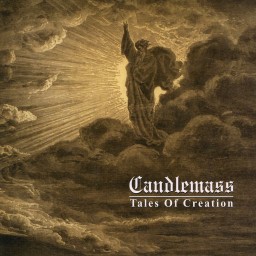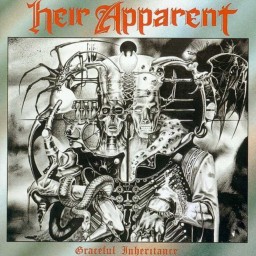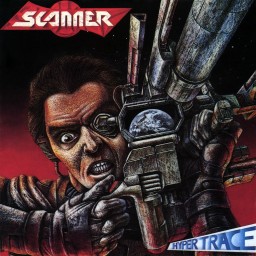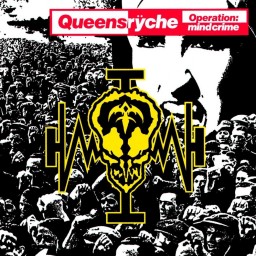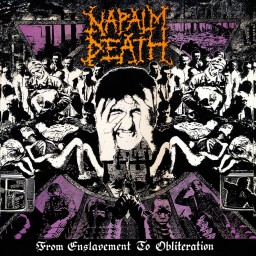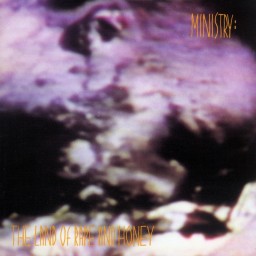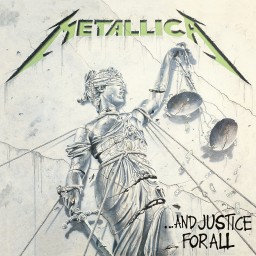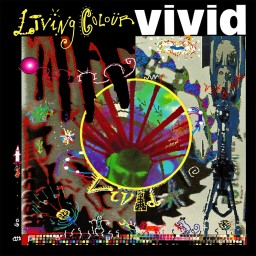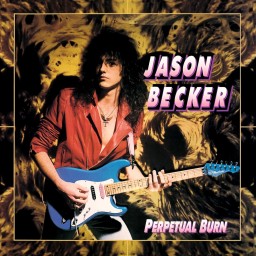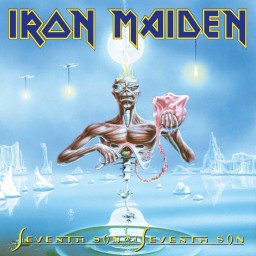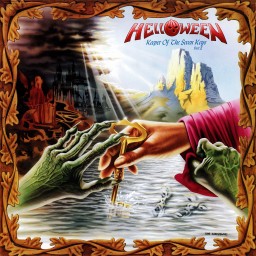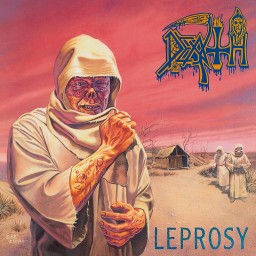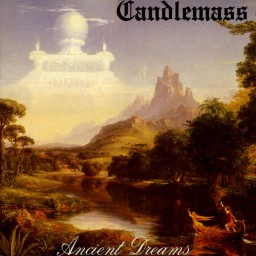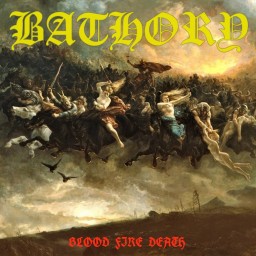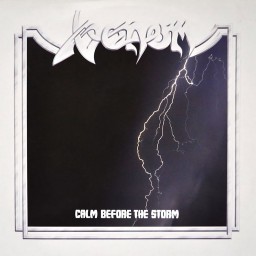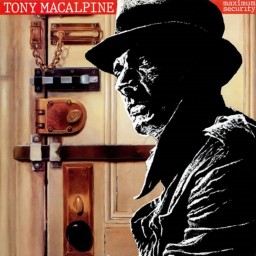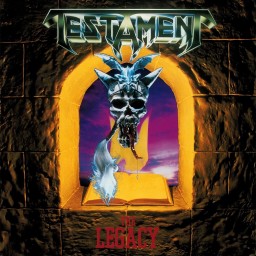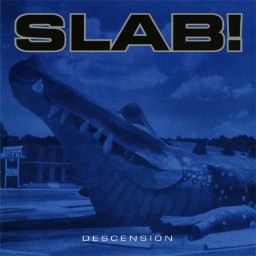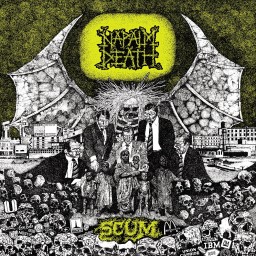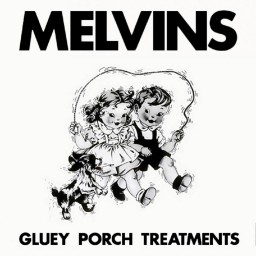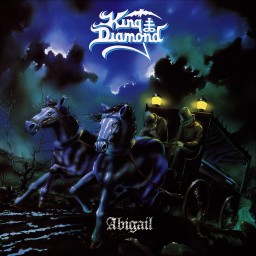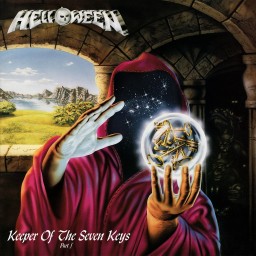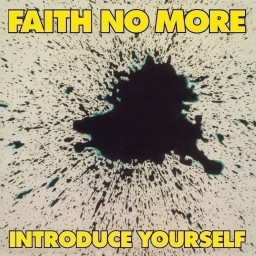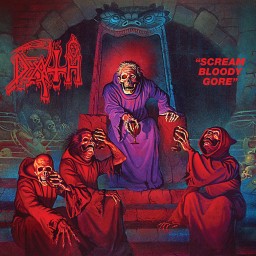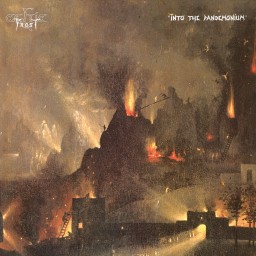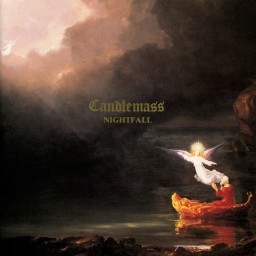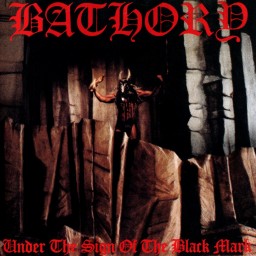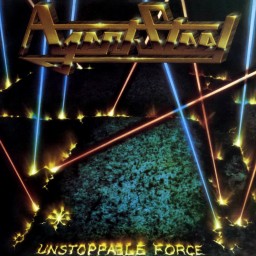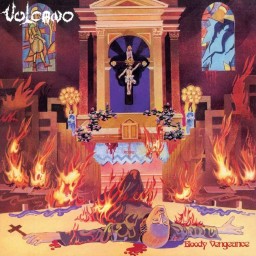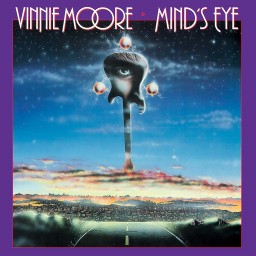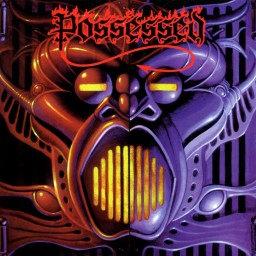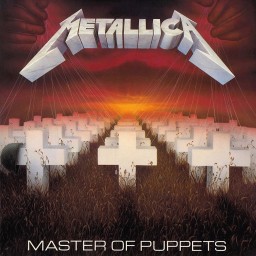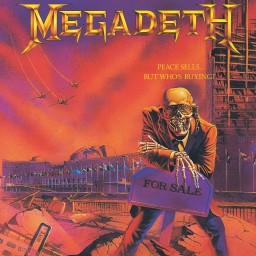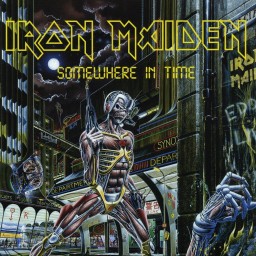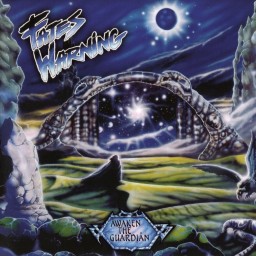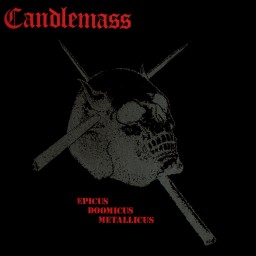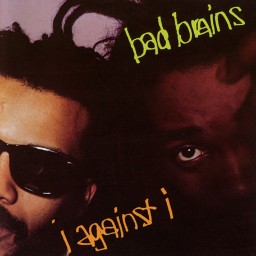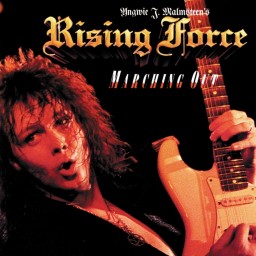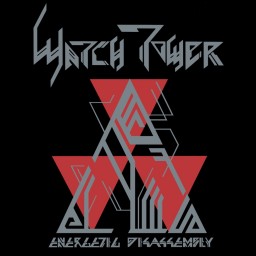SilentScream213's Reviews
Faith No More make a bit of a leap on this one. They keep their weirdo funky Alt Metal sound and knack for variety and experimentation, and slap a heavy dose of consistency on top. Before, Faith No More produced about as many good songs as total duds in their search for a sound. Here they continue changing things up, but the quality remains very good across the entire album. The keys do a fantastic job of adding some grandeur to the otherwise very generic instrumentation. The vocals are hit or miss, not really my thing, but pretty unique at the time and employ a wide variety of techniques. Overall a great improvement without straying from their roots.
Genres: Alternative Metal
Format: Album
Year: 1989
Tales of Creation is the last of Candlemass’ original golden era of albums, and what a fine way to conclude Messiah’s (first) run with the band. The album is a concept album of sorts, focusing on creation, loneliness, introspection and self-love. It may not have a direct overarching story, but there are call-back moments throughout that connect the dots.
Musically, it sounds rather identical to the previous two albums. Every song is strong, aside from the short segues there are no weak moments. Messiah’s voice is in top form, and Leif’s slow, melodic yet sludgy riffs are on point. You can’t expect anything new here, but you can expect another top notch Candlemass album.
Genres: Doom Metal
Format: Album
Year: 1989
A mesmerizing album crafted with intense care and attention to detail. Every single instrument is easily audible, and each are following their own patterns, adding to the main mix without trailing mindlessly behind a set melody or rhythm. While the music isn’t incredibly technical, it is definitely rather progressive, and include a lot of changing qualities that sustain interest throughout the 13 track album (that was A LOT of songs for a metal band in ’86.)
I don’t agree with the Power Metal label on this one, as only the speedy Nightmare has the chops to back that title up. However, it’s very evident this album fosters a genuine medieval feel to it, from the lush but cheesy keys down to the slow gallop riffs that certainly would be Power Metal if played at double speed. It’s amazing how melodic this album is, and sounds a lot like what Savatage would later become (Savatage themselves popularized the whole piano and operatic elements in metal, but these guys were doing it way earlier!).
Overall, a fantastically complete package with no weak points, plenty of variety and precise craftsmanship.
Genres: Heavy Metal
Format: Album
Year: 1986
There are a couple metal albums that got the sci-fi label in the 80’s simply for having one song about space (or god forbid, featuring a cyborg on the cover), but Scanner’s Hypertrace is the first true sci-fi metal album. Every song here follows the theme, and the music is melodic and speedy, very fitting for laser space battles. The sci-fi theme does give them a bit of a niche, but even that aside, the music here is fantastic, each song delivering great riffs and infectious choruses. Despite the fun fantasy nature of it, there are themes of revenge, hatred, and extermination throughout that can actually be taken rather seriously.
Consistency is key here, as not only is everything laden with sci-fi themes, but each song is great, despite varying enough in sound, speed and structure to keep everything from sounding too samey. A very well-done debut.
Genres: Power Metal
Format: Album
Year: 1988
I remember… My first expectations of this album, before having heard anything, were that I wouldn’t love it, or at least, not as much as Rage for Order. The reasoning is simple; I loved Rage for Order because despite being an 80’s Prog Metal album, it was built on incredibly emotive songs centering on the passionate vocals of Geoff Tate. The music was awesome, but the song structures were very straightforward and filled with explosive, anthemic choruses, and so it served the mood and the song rather than showing off technical prowess or wankery.
There are two reasons I was afraid this might change on Operation: Mindcrime. Firstly is the fact that it’s much more readily labeled Progressive Metal, while Rage for Order seems to be considered more (un)traditional Heavy Metal with some prog elements, so I was afraid the songs might leave their simple yet catchy structures behind in favor of showing off how good they are. Secondly, I was fairly certain the album was politically based. I don’t dislike political lyrics, but the problem is, I like music that makes me feel something. Political lyrics don’t make me feel anything (other than frustration, either because the message is sadly true, or because it isn’t true at all). I can appreciate sharp political commentary, but I can’t fall in love with it or feel my chest tighten due to it. I feared Queensryche would abandon their emotive cheese in favor of a more educated and sophisticated lyrical direction.
I was so wrong.
YES this album is centered around politics and social issues, and it nails them unabashedly with an unforgiving edge, taking hits at capitalism, religion, the culture of pay offs and the tyranny of the one percent in America. But the album is not politically driven. It is character driven, and that is why it succeeds in terms of both storytelling and delivering powerful, emotive songs. Without spoiling anything major, the album is a very clear conceptual story of a man who becomes disillusioned with American society (highlighting the political and social issues). He ends up joining an underground revolution, experiencing crime, addiction, love, loss, insanity, and making all these things extremely personal (this is how the album holds you and doesn’t let go). Lyrically, it remains incredibly passionate and evocative, a fantastically emotional tale that takes stabs at the big evils but never lets you forget about the individuals and their important experience.
Musically, they sacrificed absolutely nothing. The songs are still very catchy and hell-bent on creating melodies that will kick your ass, make your heart ache, or at the very least ingrain themselves in your head forever. And once again, Geoff Tate’s vocals steal the show. The amount of harmonizing he does with himself here is insane, with just about every song featuring a chorus that could go down on any all time best vocal lines ever laid down. His voice is crystal clear, he enunciates well so following the story is easy, and his range is killer. The production for everything sounds amazing, especially standing out as an 80’s album that hasn’t aged a bit.
Another thing? There are no flaws. Not every song is perfect, but they are never doing anything wrong. Nothing remotely mediocre on this 15 track epic. Even the segues are cool, providing key story bits and often having some killer music to them, which is usually where concept albums can fall apart. One of the greatest albums of all time.
Genres: Heavy Metal Progressive Metal
Format: Album
Year: 1988
22 songs that are so heavy you can’t even hear the riffs. The lyrics are quite good but you can’t hear those either. The most abrasive thing around in 1988.
Genres: Grindcore
Format: Album
Year: 1988
The album starts off quite energetically, with some simple yet aggressive and heavy riffs and some artificial but effective beats with some nice double bass work giving it some extra power. After the first couple of songs, it shifts more towards Electro-Industrial territory and loses its metallic edge. It also slows down considerably, and relies on sampling to break its simple, repetitive beats. Most of the non-musical noises thrown in add little to the sound and are usually just abrasive for the sake of being abrasive. The instrumental tracks are especially hard to bear, as Al’s manic, crazed vocals are one of the main appeals to the album.
An incredibly unique record when it was first conceived, and highly influential to Industrial Metal and other similar circles of music. Today, it is too simple and limited without offering any staying power to hold up very well.
Genres: Industrial Metal
Format: Album
Year: 1988
Metallica enter a slight stylistic shift towards the progressive, slowing down a bit and delivering more complex, technical rhythms. This is actually quite possibly their least accessible album, not only lacking any sort of anthemic rockers, but also being pretty much a downer in mood the whole time. In addition, it tends to focus more on technicality and rhythm instead of instantly memorable riffs. That’s not to say the music here is really complex, but certainly more so than previous albums.
From that, you can pretty much tell what the strengths and weaknesses are. Here is Metallica at their darkest, most technically proficient, and most serious. It’s definitely got more points in terms of “thinking man’s music” than their other stuff, but on the other end, it definitely loses memorability. The songs are all quality, but most of them lack any insanely good riffs that get caught in your head. It’s also supposed to be their angriest album, but since the straightforward aggression is swapped for rhythmic precision, it certainly comes off as less passionate, and James is yelling in time more than he is in melody. This unfortunately sacrifices mood, which leaves songs a bit flat.
Now, there are two songs here that completely evade those weaknesses. “One”, as everyone knows, is an incredibly powerful “ballad” that basically goes through stages of grief, starting slow and somber before breaking out into manic frustration. Then there’s the closer, “Dyer’s Eve.” It’s possibly Metallica’s heaviest, angriest song ever recorded, detailing child abuse and showcasing Lar’s best performance yet. This song is so strong because James sounds very convincingly full of anger and hurt, and everyone is playing at the apex of their ability.
It’s certainly a “different” album even considering Metallica’s varied discography, but it was very much a success and resulted in some of their best material.
Genres: Thrash Metal
Format: Album
Year: 1988
Living Colour emerged with a highly original sound and conscious, politically charged lyrics that as of then had not been prominent in Metal. Simple yet extremely catchy and funky riffage carries the somewhat repetitive songs along as Glover’s fantastic voice and words drive them home. The subject matter ranges from razor sharp critiques of social injustice to introspective, passionate longing, all done very effectively. The album is rather eclectic, and the band showcases their ability to shift between hard hitting Metal anthems and slow, funky bluesy numbers, touching on numerous styles in between.
Vivid is effectively one of the first Funk Metal albums ever recorded, with only Faith No More’s Introduce Yourself coming earlier, though this album is a more fully realized representation of the genre.
Genres: Alternative Metal
Format: Album
Year: 1988
Jason Becker, to me, is actually the least appealing of the many Neoclassical guitar heroes of the 80’s. He is arguably the most talented guitar player, but when it comes to songwriting, or playing anything memorable, or evocative, he doesn’t do it for me. There’s also the backing band – or lack thereof. Unlike some shredders like David Chastain who love giving their highly capable backing band moments to shine, this is just Becker, basically soloing for 40 minutes over very simple and repetitive backing music. His skill is incredible yes, but it’s basically a gimmick album at this point. The only appeal is that this guy plays so amazingly fast it might distract you from the fact that nothing else is going on.
Genres: Neoclassical Metal Progressive Metal
Format: Album
Year: 1988
Another Maiden record and another set of fantastically composed pure Heavy Metal tracks. Maiden continue to retain a very signature sound all while laying down tracks that don’t sound like anything they’ve done. This is probably their most melodic album yet, and most accessible in a way – it’s almost pure fun all the way through. The opener “Moonchild” is full of catchy riffage and anthemic vocals, “Can I Play with Madness” almost sounds like a pop song, and even the epic “Seventh Son of a Seventh Son,” at almost 10 minutes, goes by in a flash thanks to its ever changing yet never boring structure. “The Evil That Men Do” and “Only the Good Die Young” also feature some of my favorite lyrics from Bruce and provide some dark, moody atmospheres contrary to the rest of the album.
The record is pretty much exactly what anyone can expect from Maiden, while at the same time continuing to surprise with the band’s songwriting abilities. All songs are great and full of memorable qualities.
Genres: Heavy Metal
Format: Album
Year: 1988
Although the name is misleading, this album and part 1 are not two-part concept albums, and actually seem to be completely unrelated in terms of themes. This album, in my opinion, is superior and much better represents the genre of Power Metal.
While Part 1 abandoned the band’s Speed Metal energy and aggression in favor of complete melody, this album brings back the intense speed of the debut while retaining extremely melodic and uplifting songwriting, resulting in a concrete example of fully formed Power Metal. This album, like Part 1, is incredibly diverse, both in terms of themes and songwriting, with incredibly poppy numbers sitting between hyper speedy power assaults. Thankfully this album is much more consistent quality-wise, apart from the silly Dr. Stein every song is very strong.
Another note – they really went off the wall stylistically here. The lyrics are insane as are some of the sounds they throw in. It’s kind of off putting at times, but on the other hand it’s one of the most fun-sounding records I’ve ever heard. Definitely one of the first and best examples of metal not being dark in any sense.
Genres: Power Metal
Format: Album
Year: 1988
Death’s debut album was a very traditional and straightforward Death Metal release. There’s absolutely no shame in that, and since it was one of the first Death Metal albums ever, it was innovative despite being as straightforward as Death Metal goes. However, Chuck upped the ante on their sophomore Leprosy by adding a good amount of technicality and progressive elements to the songwriting. The lyrics are also better than the juvenile rubbish on the debut; still death and violence, but written much more effectively. Much like Ride the Lightning was to Kill ‘Em All, the songs here are much more mature and developed, each offering multiple passages, wild solos and a huge number of massive riffs. It’s also very consistent; some songs lean more towards the new technical direction than others, but every track is a killer.
It’s still classic OSDM most of the time, but the songwriting techniques in such an early stage for the genre are what laid the groundwork for Tech Death and Prog Death. This band was one of the first on the scene of Death Metal, but instead of remaining stagnant in that position, they continue to innovate and evolve the scene further.
Genres: Death Metal
Format: Album
Year: 1988
Candlemass deliver the same kind of quality, riff-driven epic Trad Doom as always. Again with Messiah’s intense vocal prowess, the album retains the sound from Nightfall. Ancient Dreams tends to be seen as a drop in quality, but I instead see it as a trade off of sorts. There is no doubt that Ancient Dreams fails to deliver the same highs as Nightfall; however, it also does away with any sort of filler material, which dragged Nightfall down a bit. What remains is an extremely consistent album where every song is of equal quality – an odd exception being the title track, who’s riffs are just odd, and Messiah’s vocals don’t really play off them well.
All in all, another high quality Trad Doom album that should be given the same respect as the rest of Candlemass’ first four albums.
Genres: Doom Metal
Format: Album
Year: 1988
Blood Fire Death marks one of the most clear improvements in a band I’ve seen. Bathory’s first album spawned true first wave Black Metal, and the two that followed delivered more quality yet samey material. All were very consistent packages of thrashy Black Metal with amateurish musicianship, horrible production and yet some sort of incredibly alluring interest factor that made it all sound right. On Blood Fire Death, Bathory opted to stop delivering more of the same and put the bar way higher.
Here, they abandon all their weaknesses. The music, while still simple oftentimes, is played fast and sharp; gone are the messy notes and offbeat drums, and in addition there are moments of great skill displayed as well. More importantly, the band continues to focus on mood and use their greater skill to craft awesomely aggressive and sinister soundscapes rather than showing off. The production is also much better here, and somehow they manage to hit a fantastic sweet spot between keeping the raw grit of true Black Metal and keeping all the instruments audible and sounding great. The riffs switch between moody Black and aggressive Thrash riffing and both play off each other perfectly, and despite liking previous Bathory albums, I find the riffs here to be all around much better and more memorable, maybe no small thanks to the guitars being clearly audible.
The band also capitalizes on their strengths. I said their previous albums were consistently good yet samey; this album delivers 7 consistently amazing songs that all have very distinct sounds to them. Opting for a more epic sound (but no less evil and thankfully no less serious), the band adds some keys and synths (usually choirs) here and there, and it works fantastically. They never overdo it, adding just enough to accentuate the songs and add to the individuality of each composition. The obviously synthed sounds might sound cheesy in other cases, but here the synths being not so high quality actually matches the raw mixing and ends up creating this sound that is just somehow off in the best way.
The last thing I’ll say is Quarthon finally perfected his voice. My god that hollow, raspy call is amazing. He even manages to add a lot of variety to the way he screams, switching it up to serve each song individually, and adding a ton of passion to it when he tries. Simply one of the best voices I’ve heard in metal. The lyrics are great too, ranging from the first signs of the Viking themes, to old school Satanic madness, all with peak delivery.
Genres: Black Metal
Format: Album
Year: 1988
There is a certain level of songwriting ability and production quality that Venom never had that prevent their albums from being true masterpieces, and put a real threshold on all their material. Despite that - and despite the very low ratings for this album - I find this their best, most consistent release.
I can understand the low votes, as Venom basically threw away their cult icon status to release much more commercially viable material, but anyone not concerned with status should be able to see this album has some very strong riffs and their best musicianship to date. They also added in some catchy vocal melodies for good measure. All the songs bar "Muscle" are great, sound unique (something Venom has never done) and offer a different side of the band that I think they excel at. There's nothing technical or groundbreaking here, but it's a great joy to listen to front to back, something I can't say even about Venom's great early material.
Genres: Heavy Metal
Format: Album
Year: 1987
As per MacAlpine’s usual style, Maximum Security is a classy, lush guitar hero album that showcases a lot more than pure speed or technical proficiency (though MacAlpine has those in spades). Great attention is paid to the songwriting and atmosphere here, with keys playing a very prominent role. They switch between dueling with lead guitar melodies and adding thoughtful ambiance to back it. Not much needs to be said about the guitar work itself, which is mostly top tier quality if a bit generic as far as guitar heroes go. Every song (save the short piano solo) is very strong, and most even manage to be memorable in their guitar hooks, which is a hard feet in instrumental metal.
Genres: Neoclassical Metal
Format: Album
Year: 1987
Take run of the mill 80’s Thrash and then take away pretty much any weaknesses you could find in the genre. That’s really Testament’s debut, which added absolutely nothing new to the realm of Thrash, but did everything just about as well as anyone could have. Crunchy riffs, wild solos, and a precise, speedy rhythm section played some of the tightest standard Thrash put to record. Every single song is top quality.
The most interesting factor about this album is actually Chuck’s vocals, which have surprising versatility especially for a Thrash vocalist. He can yell with the best, but he can also shift his pitch quite a bit, and carry melodies when he has to, and even throws in a couple death growls for good measure. The production is also as good as 80’s metal got, which is especially surprising for a debut. They didn’t invent anything new here, but at step one they had already mastered the craft.
Genres: Thrash Metal
Format: Album
Year: 1987
The first documented Industrial Metal album of all time comes from unknown UK band Slab!. It’s surprisingly eclectic, though that unfortunately means only a couple tracks are actual Industrial Metal, while others are various combinations of Industrial music with Jazz, Funk, and Rock.
Very experimental and noisy, it doesn’t lack innovation, but the ideas present here are very primitive. None of the songs contain any staying power, as the riffs are simple, the choruses are weak, and there’s not enough atmosphere or neat instrumentation to make up for those. They could have been something great if they honed these skills and went further, but unfortunately their story pretty much stopped here. Still hugely significant to Industrial Metal.
Genres: Industrial Metal
Format: Album
Year: 1987
People define the word “heavy” in different ways, but if you want to define it as “playing as fast and as dissonantly as possible” than Scum was the heaviest album in the world when it came out, inventing a new genre so abrasive it couldn’t fit into Hardcore Punk nor Death Metal. Grindcore is, at its core, just taking music extremities to 11 at all costs, and Scum was the first Grindcore album. This record is therein about 28 minutes of 28 songs of that; no more, no less. Nothing else to say.
Genres: Grindcore
Format: Album
Year: 1987
A milestone release, as there have been a couple very sludgy albums prior to this one (namely the B side of My War, Black Dust and Gore’s catalogue) but this is probably the first fully formed Sludge Metal album. It’s a disgustingly heavy, ploddingly aggressive mess, the kind that would have easily freaked people out back in the 80’s. Melvins basically take the aggression and anger of Hardcore Punk and slow it way down, adding in a bit of experimental elements and metallic sheen and go at it. For such slow music, a ton of tracks are incredibly short (there’s that punk influence) and despite there being 18 of them, the whole thing is very consistent.
The kind of album where you either love it all the way through, or it doesn’t do anything for you. I appreciate what they were doing here, but early Sludge Metal just doesn’t have enough going on for me. Without memorable riffs, Sludge tends to rely on atmosphere and delivery, but neither had been developed in the genre at this point, so the release falls flat on my ears.
Genres: Sludge Metal
Format: Album
Year: 1987
King Diamond – the band named after the man – are a group which will always be synonymous with the leader’s very unique vocal style of high pitched falsetto singing. This will either be a factor of great enjoyment, or something one will have to learn to tolerate. I unfortunately am in the later category; King Diamond’s vocal style is not something I enjoy, but he definitely brings intense talent to the band in terms of songwriting, and his deeper vocals are actually quite good.
That there is the only “weakness” with this album, which most consider the band’s magnum opus. I will not spend too much time applauding the musicianship, despite it all being fantastic. Every instrument is audible, technical, and serve the songs individually and as a group; the sound is classic Mercyful Fate/King Diamond stuff, with a bit more melody, emotion, and progressive elements. That alone would be enough to solidify its place in the best of metal, but there’s much more to this album.
One of if not the first full metal concept albums that follows a concise story, Abigail is not only an instrumental masterpiece, but a literary one as well. The story is engaging and fits the music perfectly. As always King Diamond delve into the occult, with a ghost story of possession. However, what makes this story so effective is not only does it merge with the evil riffing of the band, but there is also a deep sense of tragedy to it, loss and vengeance as well, and these emotions are all captured musically and literately as well. For this reason, I applaud King Diamond as a fantastic band leader despite his vocals not agreeing with me, as he crafted one of the greatest concept albums of all time.
Genres: Heavy Metal
Format: Album
Year: 1987
Kind of mixing their first album and Fates Warning’s output, Helloween play fast, technical and progressive music here, but also make room for softer, catchier numbers. The aggression of their debut has been traded in for uplifting triumph. The album is a very eclectic package despite only having 6 full songs, and one would not want for variety here. The problem there is that the material is not very consistent, with their highs being fantastic and the lows just okay. The new vocalist is a welcome addition, but even he has some pitchy moments and questionable vocal melodies between the usually solid performance.
The track “Halloween” is actually a talking point in itself, being one of the most progressive epics in all of Metal at the time. At over 13 minutes, the song shifts through so many movements, it’s about as eclectic as the rest of the album. The difference here is that the track is very consistent throughout, full of the band’s best riffs and greatest vocal performance on the album. Really, there couldn’t be a better way to sing about Halloween.
Genres: Power Metal
Format: Album
Year: 1987
Very similar to their debut, same funky grooves, prominent keys and oddball lyrical delivery. The Funk influence is turned all the way up, and it even features some rapping (I assume from Chuck, but most of the members do backup/gang vocals as well). Overall, it’s more focused with better riffs and some good vocal melodies as well, but it’s no huge leap. Still very juvenile, mediocre Alternative Metal, great record for fun, not so much for a serious listen.
Genres: Alternative Metal
Format: Album
Year: 1987
Scream Bloody Gore is most likely (depending on who you ask and how strict you’re being) the first true Death Metal record, and by that I mean it’s not Death and Thrash like Seven Churches or Blackened Death Thrash like Morbid Visions. Absolutely there are still Thrash influences, but this is primarily a Death Metal record and could not be argued otherwise.
Amazingly for a debut album in a genre still in infancy, the music is grade A material. The musicianship is tight and fast, Chuck being rather technical even here. Chuck’s growls are also prime cuts of the genre, inhibiting a fantastic middle ground between demonic growls and discernible yells. Even the production is pretty good for an underground debut, nothing groundbreaking but all the instruments including the bass are audible and strong. And that snare sound – my god, never heard anything that stuck with me so much. Just the right amount of reverb to pack a lasting punch that somehow sounds sinister. This is the kind of drumming that is simple (not easy!), but serves the music so incredibly well.
There is one weakness here. For many a non-issue, but for me a glaring one: the lyrics range from bad to offensively atrocious. They’re pretty much what it says on the title, with subjects of gore, random acts of violence, death, etc. Don’t get me wrong, there is a right way to do this – Pig Destroyer and Slayer (when Tom is writing) are prime examples of writing eloquently and effectively on such matters. The lyrics here sound like an 18-year old’s Deathcore band. They’re just so juvenile they take away from the music at parts, and ruin the otherwise evil atmosphere.
Genres: Death Metal
Format: Album
Year: 1987
Celtic Frost were always a strange band as far as Metal went back in the day, but with Into the Pandemonium, they crafted the first album bizarre and eclectic enough to comfortably sit in the Avant-Garde Metal territory still 30 years after it’s creation. There are a couple songs on here with the same Blackened metal approach as Into Megatherion, but I personally wouldn’t call anything on here straight Thrash. There are also multiple interlude pieces, one of which being a sample driven drumbeat, scattered female vocals and symphonic elements, doomy gothic elements, and even poppy hooks, at least half of which are still growled.
Band leader Tom Warrior adopts a new style of singing here, something reminiscent of a whining, moaning cry. It’s very hammy but also sorrowful and pained, so YMMV on whether it’s good or not that this vocal style had a big impact on Gothic and Doom metal in the coming decade. The variety and filler make this indisputably weaker than the debut album, but it is still a unique treasure with a lot to offer.
Genres: Avant-Garde Metal Thrash Metal
Format: Album
Year: 1987
Candlemass enter one of their most celebrated lineups here with the addition of Messiah and record the great Nightfall. By 1987, Candlemass was pretty much indisputably the best Doom band around, especially solidifying the fact after dropping a follow up album just as amazing as their debut (both of which remain their finest works in most people’s opinion).
They continue the same style as their debut, adding an epic and even uplifting sound to the slow and simple Doom genre, rife with religious symbolism as well as occult fantasy. Messiah and leif grab all the attention here, as Leif wrote most if not all of the music, including many of Trad Doom’s most memorable riffs, and Messiah puts on a vocal performance that would sound at home in an opera show. The act works well for the epic Doom rockers, and many of the songs tell small tales that effectively play off this aesthetic.
Unfortunately, while the debut was strictly 6 great songs, this album has a bit of filler found in mostly pointless interludes between songs. At the Gallows’ End and Samarithan are two of the greatest songs the band ever wrote, but the filler puts this album just below the debut in my opinion.
Genres: Doom Metal
Format: Album
Year: 1987
Bathory is back at it with perhaps their strongest album yet. The production is just a bit better and the musicianship is just a bit tighter. The songwriting has more variation but still retains the signature evil, distant atmosphere at all times. Other than that, it’s just classic Bathory, plain and simple.
Genres: Black Metal
Format: Album
Year: 1987
An unfortunate case, as many have said before me: the music here is fantastic, but the vocals are very grating. The musicianship is prime Speed Metal, with fantastic, melodic riffs constantly assaulting you backed up by a very good rhythm section that combines speed and precision. Pretty much every song has a couple of worthy riffs that could be at home on any metal masterpiece of the 80’s.
It is no accident that the instrumental here is considered the best track, despite the music being on par the entire album. The vocalist is, not exactly bad, but… It just doesn’t work. When he’s singing more slowly and melodically, like in the acoustic into to Chosen to Stay, he actually does a good job, and has quite an impressive range. When he’s singing fast and more aggressively though, it all falls apart. It’s pitchy, grating, maybe off key, I can’t really tell since he’s changing notes so frequently. It just doesn’t work.
The lyrics are pretty standard sci-fi/fantasy fare, and follow the same themes as the first album. There are numerous nods to conspiracies and such, nothing really outstanding or even unique at the time. This is one of those albums that would just fair better as an instrumental piece, and would have improved significantly from a better vocalist.
Genres: Speed Metal
Format: Album
Year: 1987
Wow. Vulcano from Brazil enter the metal scene in a blaze of black fire. One of the earliest metal recordings from South America is a raw, aggressive mesh of Blackened Death Thrash, and it rules! Vulcano take Bathory as a blueprint and add some beefy Death metal riffs and harrowing vocals that end in a much more convincing product than even Bathory concocted. These guys would be a huge influence in the boom of extreme metal in South America, mostly staying under the radar as fellow Thrashers Sepultura broke the mainstream.
The production is awful a la first wave Black Metal, but with focused listening one can uncover a great amount of talent and some incredibly sick riffs and rhythm-work going on. Just an awesome, evil release.
Genres: Thrash Metal
Format: Album
Year: 1986
Aside from perhaps Watchtower, this was the most technical, progressive, and impressive display of musicianship in metal as of 1986. Sure there were other guitar gods – Malmsteen, MacAlpine, to name a couple – and any one of them could be considered “the best.” Vinnie Moore could absolutely compete with the big names in terms of pure technical skill. However, Moore had two qualities that most guitar shredders lack.
First of all, Moore is not just a soloist – he is a brilliant songwriter. As far as instrumental metal goes, Moore doesn’t write songs that sound like no more than a showcase for his talent; they are complete compositions, entertaining throughout, memorable, sometimes catchy, sometimes evocative. I haven’t quite figured out why yet, but I do prefer my music to have vocals, and usually instrumental music feels like it’s missing something to me. Mind’s Eye does not. It is fully realized material that stands on its own.
Second of all, the backing band. This might as well be a supergroup – MacAlpine himself is on keys, just as proficiently filling the role as he does shredding solo – but every member is very, very skilled. Moore is obviously the bandleader, but he does not outshine the other members. They keep up, they are given moments to shine, and they constantly add unique elements under the masterful guitar playing. Not only are there no songs less than great, but there are really no moments less than great, as there is always so much going on in every given moment.
Unfortunately, it does have a ceiling. Instrumental virtuoso metal might not get better than this, but that style is still a limited, niche style best in small doses.
Genres: Heavy Metal Neoclassical Metal
Format: Album
Year: 1986
This album gets a lot of flack for being generally weaker than its predecessor, but I heard no drop in quality whatsoever. It’s exactly the same messy, thrashy, raw old school death metal as on the debut. Perhaps it could be critiqued for not innovating at all, but who needs innovation when the music is this good?
The similarity between this and their debut makes it rather difficult to review. If I have to nitpick, I could say some of the riffs sound a little less inspired, and generally repeat for a bit longer. However, the musicians also sound tighter, more focused and clearly in better practice. All in all, it’s just another really fantastic Death Metal album from the creators themselves.
Genres: Death Metal Thrash Metal
Format: Album
Year: 1986
One of those albums you know upon first listen as a masterpiece. Now, I’m going to start off by saying it’s only my second favorite Metallica album, and I wouldn’t put it anywhere near my favorite metal albums of all time or anything. There are hundreds of bands out there that cater to my taste more than Metallica – probably a hundred Thrash bands alone.
The thing is, this album just has that sort of magic anyone can identify. Dare I say, a sort of objective quality that one can appreciate, if there was such a thing. This is one of the closest albums I’d award the term flawless to. It’s not that every song is a 5-star masterpiece, however, there simply aren’t any glaring, or even hidden, flaws. The musicians, as always, are fantastic; the dual guitars deliver a combination of incredible riffs and solos, the bass gets time to shine, and Lars on drums sounds better here than he ever had before or would since. James sounds fantastic, using his melodic singing more here than before (and acing it) while still giving us a healthy dose of aggressive yelling. The lyrics here are all great too, referencing literature, war, mental illness, and more.
The music itself is very consistent for an album that mixes a lot together. There is pure heavy, thrashing aggression; there is slow, moody darkness; there are even emotionally compelling and beautifully melodic moments. Every song is a complete package with tons of great riffs, solos, and a couple have complete mood/tempo changes. Despite this, they are all very memorable and deliver something unique. No one can go wrong with this album when looking for a masterpiece.
Genres: Thrash Metal
Format: Album
Year: 1986
As a huge fan of Thrash Metal, Megadeth strangely never hit the marks I love in this kind of music. To their – mostly Dave’s – credit, the songwriting and solos are great, and the riffs are not far behind. However, where the band always lost me is in their delivery and atmosphere. Dave’s not a good vocalist, but that’s not what bothers me, as raspy shouting is something I enjoy. The problem is that not only does he struggle to create any sort of memorable hooks or verses, but he also writes some bad lyrics. The delivery on most songs is sarcastic, sometimes angry but all too often it just sounds like he’s yelling for the sake of yelling without any conviction or thought behind the words.
The music actually matches this – while as I said, the musicianship is really good, there’s really no atmosphere or emotion being conveyed. There are great moments like the openings to Good Mourning and Bad Omen, both having a more ominous and serious atmosphere. However, most of the time it just sounds like the band is jamming out to earn their dollar, which is not something I want in Thrash. It’s not dark, and the anger present is only very surface-level “I hate paying my taxes” kind of anger.
To be clear - It is a great album. The music is well-written and expertly played, the production is about as good as 80’s metal gets, and there aren’t any actually bad songs, but I find it massively overrated, and rather empty compared to most contemporary releases in the genre.
Genres: Thrash Metal
Format: Album
Year: 1986
Simply amazing. Iron Maiden continue to shock me with the amount of talent and songwriting ability they displayed at such an early time for metal. Every song has stand out riffs and fantastic vocals from Bruce, and more than a couple show off the individual talents of the rhythm section far beyond anything Maiden had done yet.
Some of the songs add a hint of progressive elements, technicality, and a bit more keys than they’ve used before. But there’s really no major change; this is Maiden just being Maiden, and instead of running out of ideas, they’ve simply gained wisdom and skill and created an entire album of bangers. No band at this time was using dual guitar harmonies to the extent and success of Maiden, and by the looks of how metal turned out, it’s pretty clear how influential this band was on the entire landscape of the genre.
It’s mind-blowing to me that Maiden, 6 albums into their career, were still crafting some of the most memorable songs in Heavy Metal. There’s not much else to say because they really aren’t doing anything different; just playing honest Heavy Metal, better than anyone else ever had, and maybe ever would.
Genres: Heavy Metal
Format: Album
Year: 1986
For their third album, Fates Warning followed mostly the same sound of their acclaimed sophomore album, The Spectre Within. The band’s highly melodic and often progressive yet deceptively simple music offers accessible entertainment. Most of the power metal influence from their last album is gone unfortunately, resulting in a slower and more sustained delivery.
John’s vocals, while never outstanding, are certainly stronger here than ever before, and his passionate delivery accompanied by the somewhat neoclassical musicianship add a flavor of theatrical atmosphere to the music. The long songs are never boring, containing multiple movements and layered with harmonies. While I miss the speed of their previous release, they certainly check every other box of 80’s Heavy Metal very well.
Genres: Heavy Metal Progressive Metal
Format: Album
Year: 1986
Epicus Doomicus Metallicus. The name carries immense weight, even before hearing what lies therein. Often given the title of the greatest Doom Metal album of all time, bandleader Leif Edling carries the band with immense riff-writing prowess, and Johan Längqvist wields a powerful, epic operatic bellow. Here, he sets the now solidified trope of epic vocals in Trad Doom. His voice was very unique at the time, being capable hitting highs and lows and everything in between, but always remaining melodic and full of vibrato. The riffs here are reminiscent of early Sabbath, but heavier, groovier, and better.
Epicus Doomicus Metallicus has no shortage of quality riffs and vocals, and in fact, there is absolutely no filler to be found. Something Candlemass hadn’t expanded on for Doom, however, was the mood and atmosphere. The songs here remain rather generic worshippings of demons, god, and death in general, and apart from some nice acoustic sections, there is no variation in style or sound. Candlemass are no doubt gods at what they do, which is play straightforward Trad Doom. Unfortunately, to call this the greatest Doom Metal album of all time when the genre has expanded into something so much more than straightforward slow metal is rather unfounded.
Genres: Doom Metal
Format: Album
Year: 1986
The first Alternative Metal of all time comes from a band who started out doing Reggae infused Hardcore Punk. Shades of their past are present here, and this is still a very punky record. Nevertheless, making the jump to metal really improved their sound in my opinion, as this album is more melodic and much more focused than their previous Punk efforts. Whereas before they sometimes played Punk and sometimes played Reggae, here they do a much better job of fusing their punky Metal with a ton of other influences, and it mostly works.
The album is a genre in its infancy, and occasionally a bit rough around the edges, but it’s certainly never boring.
Genres: Alternative Metal
Format: Album
Year: 1986
Yngwie’s sophomore solo album is much more traditionally structured like a regular album, with almost every song featuring vocals (strong vocals at that) and the improvised noodling is kept to a minimum. Depending on your taste, that can be a plus or a minus, but for me it’s a huge plus. Yngwie works best as support – he writes fantastic riffs, and his solos are excellent in small doses, rather than dedicating entire songs to him improvising. Although far from pop songs, the vocals feature some fantastically catchy choruses, and though the songs delve into anthemic arena rock territory, Yngwie keeps it interesting by ensuring the backing riffs are as technical and engaging as ever.
Definitely an improvement over the debut in my opinion, which was impressive but occasionally boring.
Genres: Heavy Metal Neoclassical Metal
Format: Album
Year: 1985
The first true Progressive Metal band of all time
Manic technical insanity. There was nothing even remotely close to the progressive technicality going on in metal (or anywhere else aside from Jazz) at the time of this release. So far ahead of it's time that it can still be called an impressive anomaly of musical prowess today.
The music on display here is 5 star material. There are just a few unfortunate problems that really drag it down; first of all, the vocalist isn't great. Especially where every other member is an absolute virtuoso at their instrument, the weak vocalist really stands out. To his credit, he does write some interesting lyrics, especially for the time. The guitar and drum tones are also pretty bad, although the bass sounds great (it's audible).
Regardless, it's probably this album that spawned hyper technical metal, and pushed the genre to even further extremes without simply playing heavier. Groundbreaking and influential, but more importantly still an amazingly entertaining record to this day.
Genres: Progressive Metal Thrash Metal
Format: Album
Year: 1985










